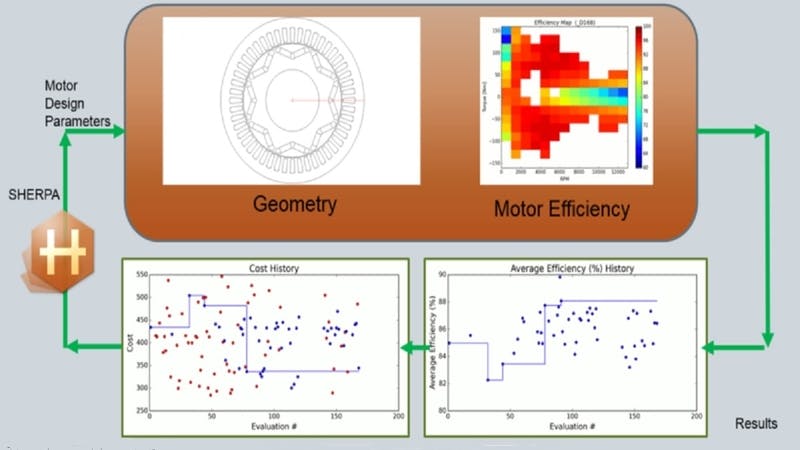In today’s environment our day-to-day routine has been dominated by electric machines, for example, the clock hand may be turned by a small electric machine with a power consumption of only a few mW; the electrical toothbrush head is rotated by a small electric machine of a few W; the vacuum cleaner hoovers from several hundred W to a few kW; and our Electric Vehicle (hybrid or full) uses several tenths of kW; and finally looking towards the generators (windmill, hydroelectric-, gas-, coal or nuclear power station) generating electricity with power ranges of several hundreds of kW up to several tenths of MW.
All those electric machines (motors as well as generators) need to be designed carefully dedicated to their final application, paying special attention to their overall efficiency, power density, speed range, robustness, manufacturability while being cost-effective. Achieving these objectives alongside handling the technical complexity of an electric machine design makes it an ever-increasing difficult engineering challenge to resolve.
In this webinar, you will learn:
- Benefits of using simulation throughout the design process.
- Achieving more precise and detailed electric machine analysis
- The value of multiphysics simulation and comprehensive workflow for the design of electric machines
- An expansive view of how Simcenter can give you a competitive advantage.
Who should attend?
- Electrical, Mechanical and System Engineers who design electric machines
- Project and Product Managers
- Simulation and Application Specialists
About the Speaker:
Markus Anders is part of the application specialist team within the Simulation & Testing Solutions segment of Siemens Digital Industries Software. He works closely together with the Simcenter SPEED development team and provides globally support in pre- and post-sales activities.
He graduated in electrical engineering at Darmstadt Technical University before completing his PhD at the Technical University of Darmstadt in 1999. Since 1998 he has been with MACCON GmbH as the head of the motor design department, responsible for the design, analysis and manufacturing of customized electrical machines along with selling and supporting dedicated electric machine design software. Markus Anders joined Siemens as part of the acquisition of CD-adapco, which he joined in 2012. He is based nearby Frankfurt am Main, Germany.
